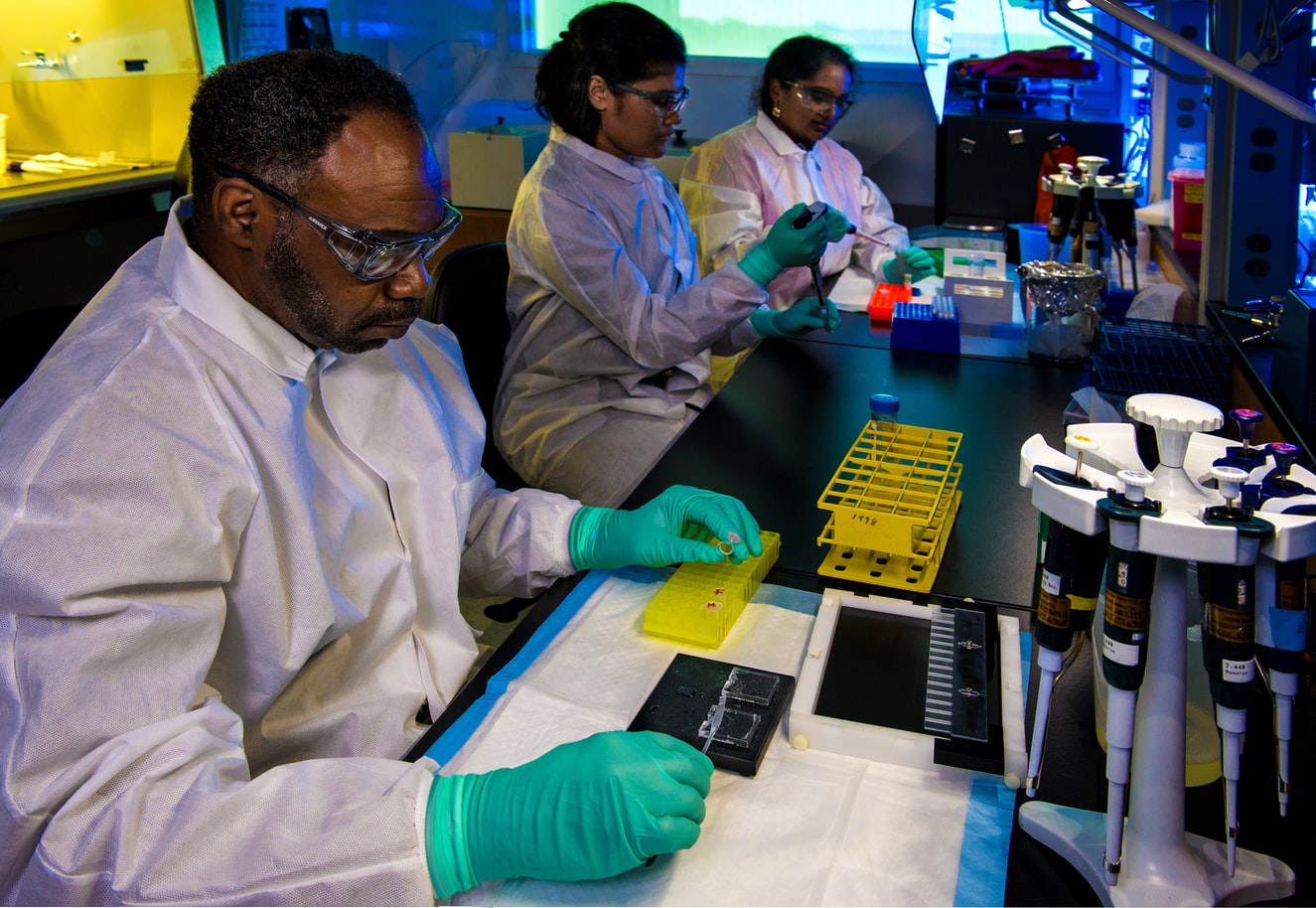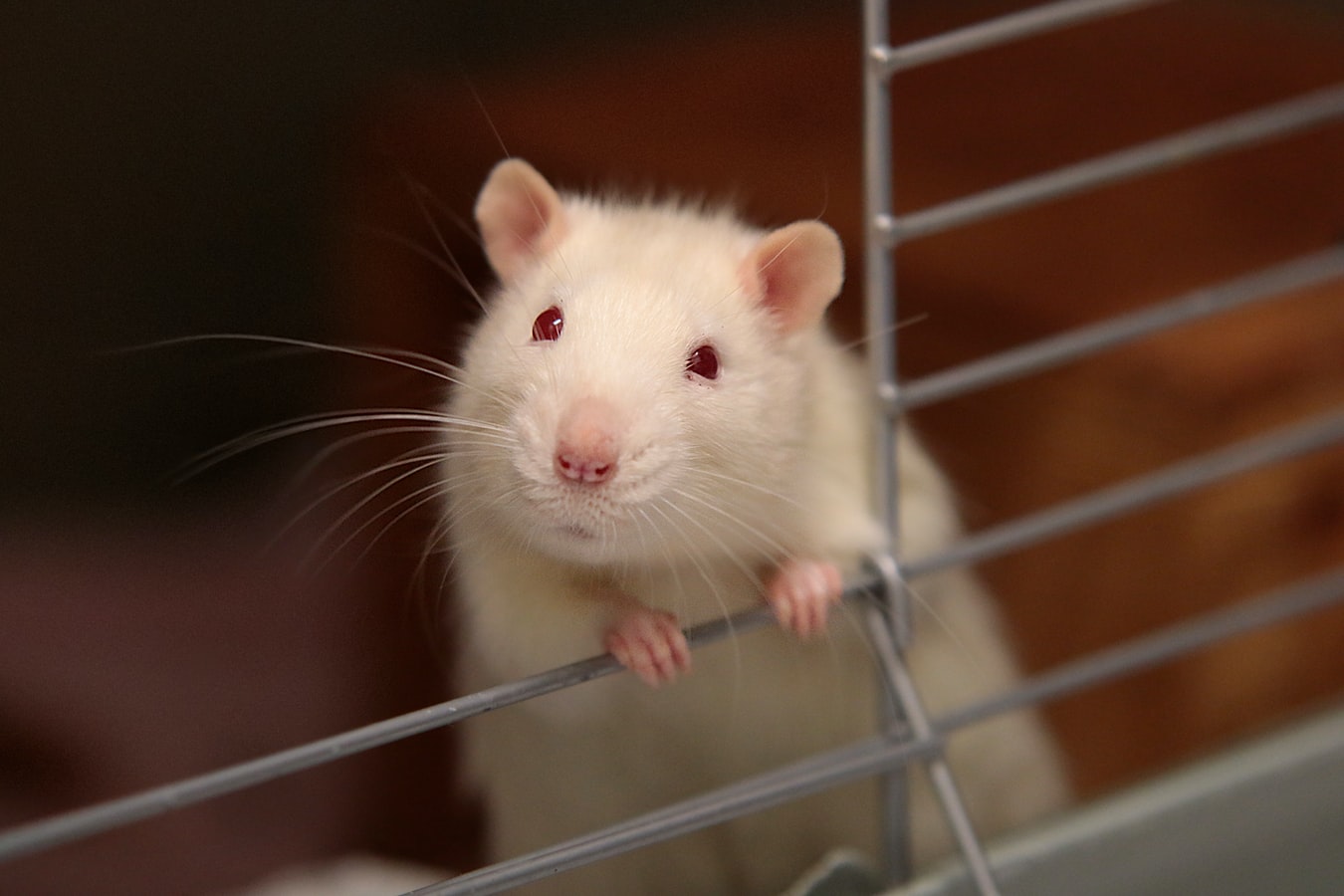Cocaine can have devastating effects on the human mind and body. Every year, cocaine and other illicit stimulants are abused by millions of Americans. The United Nations Office on Drug and Crime reported that nearly 140 tons of coke were seized in America in 2015 alone. Cocaine is addictive because it directly stimulates the brain’s reward centers and triggers addictive behaviors. Over time, cocaine use can create long-term impacts on the brain’s reward circuitry, leading to short and long-term withdrawal symptoms when the drug is discontinued.
Scientists in Belgium recently discovered a gene that could play a crucial role in the way our brains develop an addiction. The gene, Maged1, has been linked to responsiveness to antidepressants, but also chronic cocaine abuse. When scientists isolated the gene from lab rats, they became entirely unresponsive to cocaine, not developing an addiction or tolerance to the substance.
The gene, known as Maged1, could hold the key to a future understanding of the chronic disease of addiction and its effects on the brain. When the gene was removed from the test group, the lab rats displayed none of the typical signs of addiction such as drug seeking and drug self-administration. Scientists believe that the correlation between Maged1 and addiction lies in the gene’s effects on dopamine dispersal. In a similar way to how Vivitrol blocks the effects of opioids, the lack of Maged1 impairs the brain’s ability to produce dopamine in response to cocaine consumption.
Medication-assisted treatment has been used for this type of application before. Naltrexone and Naloxone are both opiate antagonists that bind to the opiate receptors in the brain and block it from getting a massive influx of dopamine. Antabuse, the controversial anti-alcohol medication, works by triggering nauseating symptoms in the liver to deter patients from ever associating alcohol with pleasure again. The long-term intent of these drugs is to deter the user from ever wanting or needing to abuse their drug of choice ever again.
The Genetics of Addiction

The prevailing wisdom of current addiction clinicians is that addiction is a chronic disease of the brain with a strong genetic component. According to the National Institute on Drug Abuse (NIDA), addiction is a “chronic and relapsing brain disease in which drug use becomes an involuntary habit despite all the negative consequences that ensue”. Historically, addiction has been viewed as a lapse in character or weakness. Addicts do bear a degree of personal responsibility for managing their addiction, but to place the blame on addicts entirely dismisses the verifiable brain changes that substances create and the existence of genetic predispositions to addiction. Much like how some people may be predisposed to developing certain cancers, addiction is a disease that can be inherited through genes. The disease model of addiction is subscribed to by most medical organizations, including the American Medical Association and the American Society of Addiction Medicine.
The discovering of the Magden1 gene could be the first breakthrough in isolating the exact brain mechanisms that cause addicts to develop a substance abuse disorder in the first place. We know that a multitude of factors correlates with the likelihood of addiction such as family history and environment, but further evidence of a genetic component will help to destigmatize addiction in people’s eyes.
Identical Twin Study
Numerous studies have confirmed a possible link between genetics and addiction, but one study that examined identical twins and alcoholism has shed more light on the true extent of this correlation. The study looked at 861 identical twin pairs and 653 fraternal twins over a period of 20 years, beginning in adolescence and into adulthood. The study found that when one identical twin was an alcoholic, the other twin had a higher chance of also being addicted. When a fraternal twin was addicted to alcohol, the other twin had a less than statistically relevant likelihood of also being an alcoholic. Based on these differences, the study concluded that roughly 50% of addiction could be attributable to genetic factors, with the other 50% owing to poor coping skills for dealing with stress and uncomfortable emotions.
Family History Study
Another study that looked at over 200 people diagnosed with drug and alcohol addiction compared to a sample group of non-addicts found a strong correlation between parent and children addiction. Overall, those with a parent that has an alcohol or drug addiction were anywhere from 3-8 times more likely also to have an addiction.
Why Do Individuals Get Addicted
While it may seem like a fatal flaw in our DNA, addiction makes sense from an evolutionary standpoint. Things that are pleasing to us such sex, eating, feeling love and sleeping are all things that keep us alive and continuing to spread our genes. The problem is that society has progressed to a point where we can chemically modify substances to create drugs that hijack our brain’s reward pathways and crank them past their natural limits. These feel-good chemicals were intended to guide us through long, happy, fulfilling lives, but we have hijacked them to make coping with our worry-filled, anxiety-inducing lives more bearable. Unfortunately, no high lasts forever, and the highs we have created are sometimes too good for people to let go of.
Mental Illness (Dual Diagnoses and Comorbidity)
The National Institute on Drug Abuse has published multiple studies outlining a clear correlation between addiction and mental disorders. Those with an addiction to some substance are roughly twice as likely to also suffer from a mood or anxiety disorder compared to the non-addict population. There is no certainty that the presence of one necessitates the other. There is also no defined causation between the two afflictions. For example, in some cases, a mental illness may cause someone to self-medicate and develop a substance use disorder. In other cases, a substance use disorder may exacerbate or induce some psychological disorder such as anxiety or schizophrenia. If you have been diagnosed with a mental disorder, it’s essential to avoid attempting self-medication with illicit substances or tobacco and alcohol. You may find more benefit from therapy or some clinical prescription program.
Brain Chemistry
The reward pathways of the brain have everything to do with how drugs work and how addiction develops. For example, if you have a naturally low dopamine balance in your brain, you may be susceptible to the euphoria-inducing effects of drugs and alcohol. Drugs and alcohol create artificial surges in feel-good chemicals in the brain, but the effects do not last and will eventually leave the brain depleted and in need of more to achieve even baseline levels of happiness.
Dopamine is one the most prominent of the brain’s feel-good chemicals. Regulating dopamine’s effects throughout the brain are the receptors, of which there are five known main variants: D1-D5. Along with pleasure, these receptors work to keep dopamine levels equally distributed for a variety of tasks, from memory to motor control. Drugs, including opioids, amphetamines, and cocaine result in a sharp, temporary surge in dopamine within the brain.
Anxiety and Socialization
One reason that people start abusing drugs and alcohol is to ease the anxiety of socialization. There’s a reason why alcohol is called the social lubricant. Since before written history, alcohol has been used to create feelings of euphoria, ease tension, and make celebrations even wilder. Drugs and alcohol can make it easier for some to socialize and talk with others. Alcohol is infamous for making people feel confident, speak up, and become more prone to engage in an activity they may not otherwise do. However, if someone grows to rely on alcohol to function in social situations, they may have an addiction.
In college especially, many adults experience their first interactions with drugs and alcohol. There is immense pressure on college students to make friends, be liked, and fit in. Research from the Behavioral Health Statistics and Quality study show that more a third of college students aged 18-22 have engaged in binge drinking within a month during the school year. Roughly 1 in 5 of all students has used an illicit substance in that time as well. For students, alcohol is the most commonly used and abused substance on campus. Studies also show that college is the time when most adults will engage in dangerous or risky drinking behavior. In other words, they will most likely binge drink or reach unsafe levels of blood alcohol content.
Poverty
It is a sad truth of this world that poverty and addiction go hand in hand. One study by the National Bureau of Economic Research highlighted a positive relationship between poverty and substance abuse that extends across state lines, gender, and race. Much like the correlation between mental illness and addiction, poverty and substance abuse are heavily intertwined with no clear causation. The reality is that poverty can cause a person to rely on drugs and alcohol to cope with the difficulties and stresses of daily life. Similarly, a substance use disorder can quickly lead to a person failing to meet their financial and personal obligations.
According to the U.S. Census Bureau, nearly 1 in 6 Americans is currently living in poverty. 3.7 millions of those living in poverty are in need of treatment for some type of substance use disorder, but less than a quarter are going to receive the type of treatment they need. Addiction and poverty feed off of one another. Poverty can lead to drug abuse, incarceration, mental disorders, and worse. The question for us to answer is how to address both poverty and substance use in a manner that adequately tackles both problems as directly correlated.
Genetics, environment, mental disorders, and poverty are all the most common correlative signs that someone may develop an addiction to drugs and alcohol. While the presence of these factors may increase your likelihood for developing an addiction, they do not necessarily mean you can or will develop an addiction. Unfortunately, it just means that you may have to be more vigilant against the possibility of addiction. If you’re concerned that you may be predisposed to addiction, have a conversation, have a conversation with friends and family or a licensed clinician to see if others share the same opinion. If you want to curb your addiction, consider checking into an alcohol and drug rehab center.
Cross Addiction
Unfortunately, one addiction can quickly lead to another. The influence of any of the above factors can significantly impact your likelihood for developing more than one type of substance use disorder. Starting with any substance can lead to starting another, for example, experimenting with cigarettes and alcohol can increase your chances for being exposed to and eventually trying a harder substance such as cocaine, methamphetamine, or heroin. If you have a family history of addiction, your brain will not discriminate on the type of substance you can become addicted to. Your brain is wired to treat these substances the same way, flooding your body with feel-good chemicals and increasing your risk for developing an addiction.
Many addicts descend into worsening addictions because their tolerance to a substance grows as they continually abuse it. For some in recovery, a reversal of this process can be helpful for ultimately reaching sobriety. Some medication-assisted treatment methods involve giving addicts less potent forms of the substance they abused, such as with methadone and suboxone treatment. The ultimate goal of rehab and residential treatment centers is to walk addicts back from this downward spiral of addiction and to gradually replace substance abuse with healthy coping mechanisms such as better communication, physical fitness, mental clarity, and more.
Next Steps
Research into the Magden1 gene presents a promising start to further medical treatment for the disease of addiction. However, for those that need help now, there are addiction treatment centers that specialize in getting people clean, helping them gain clarity into their mental state, restructure their lives, and give them continued support on the road to recovery and happiness.

Choose Recovery Over Addiction
We're here 24/7 to help you get the care you need to live life on your terms, without drugs or alcohol. Talk to our recovery specialists today and learn about our integrated treatment programs.





